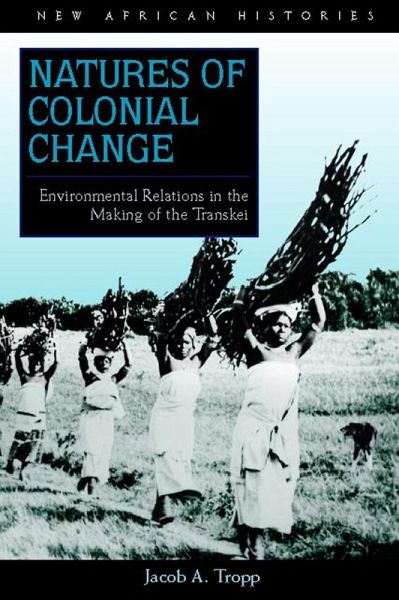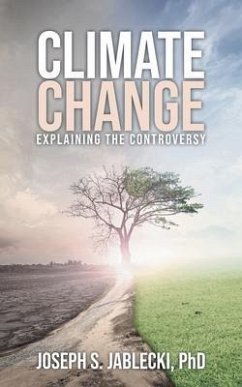
Natures of Colonial Change (eBook, ePUB)
Environmental Relations in the Making of the Transkei

PAYBACK Punkte
8 °P sammeln!
In this groundbreaking study, Jacob A. Tropp explores the interconnections between negotiations over the environment and an emerging colonial relationship in a particular South African context-the Transkei-subsequently the largest of the notorious "homelands" under apartheid. In the late nineteenth century, South Africa's Cape Colony completed its incorporation of the area beyond the Kei River, known as the Transkei, and began transforming the region into a labor reserve. It simultaneously restructured popular access to local forests, reserving those resources for the benefit of the white sett...
In this groundbreaking study, Jacob A. Tropp explores the interconnections between negotiations over the environment and an emerging colonial relationship in a particular South African context-the Transkei-subsequently the largest of the notorious "homelands" under apartheid. In the late nineteenth century, South Africa's Cape Colony completed its incorporation of the area beyond the Kei River, known as the Transkei, and began transforming the region into a labor reserve. It simultaneously restructured popular access to local forests, reserving those resources for the benefit of the white settler economy. This placed new constraints on local Africans in accessing resources for agriculture, livestock management, hunting, building materials, fuel, medicine, and ritual practices. Drawing from a diverse array of oral and written sources, Tropp reveals how bargaining over resources-between and among colonial officials, chiefs and headmen, and local African men and women-was interwoven with major changes in local political authority, gendered economic relations, and cultural practices as well as with intense struggles over the very meaning and scope of colonial rule itself. Natures of Colonial Change sheds new light on the colonial era in the Transkei by looking at significant yet neglected dimensions of this history: how both "colonizing" and "colonized" groups negotiated environmental access and how such negotiations helped shape the broader making and meaning of life in the new colonial order.
Dieser Download kann aus rechtlichen Gründen nur mit Rechnungsadresse in A, D ausgeliefert werden.













